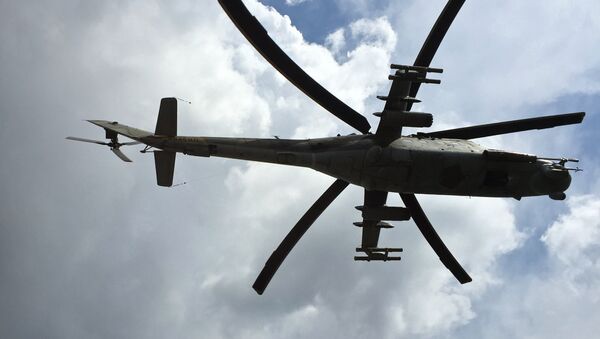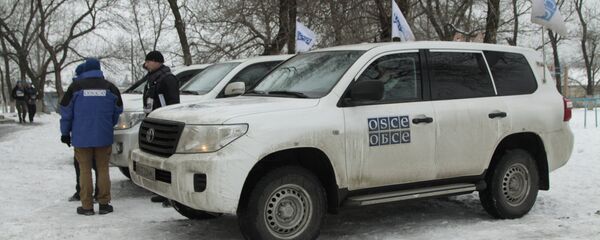In Imvepi, northern Uganda, men, women and children queue for food and water of questionable drinkability in the intense heat of the north-east African sun, at a hastily constructed refugee camp. These unfortunate individuals have all fled — mostly on foot — across the South Sudan border, escaping ever-burgeoning bloodshed in their home country. The causes of the conflict are manifold, pitting government forces against opposition elements and split across tribal lines.
The impact of the conflict, which has raged since 2013 (when Vice President Riek Machar, a Nuer, was dismissed by President Salva Kiir, a Dinka) is staggering — an estimated 100,000 South Sudanese residents are dying of starvation, with a further one million rapidly approaching malnourishment.
Our volunteers support Persons wt Special Needs among South Sudasese Refugees to possess household latrine in Imvepi refugee settlement pic.twitter.com/bFFnuSgJYW
— Uganda Red Cross (@UgandaRedCross) May 20, 2017
The only question is how the war is being fueled and furnished, and the United Nations and European Union alike believe they have the answer — Ukraine, abetted by arms contractor middle men in EU member states. The fledgling country's US$42.8 million defense contract with the country, which has seen Ukraine provide the government with several Mi-24 attack helicopters among other armaments, is dangerously prolonging the conflict and producing untold fatalities. Moreover, the agreement was inked despite Kiev's ostensible commitment to a 2014 EU arms embargo on South Sudan.
A UN Security Council investigation has revealed the helicopters were sold long after the conflict had degenerated into bloody chaos. The UN is adamant the helicopters have been used against civilian targets, and an International Committee of the Red Cross hospital.
The Mi-24 helicopters that #SouthSudan govt still uses to kill civilians were sold by Ukraine in violation of the EU arms embargo. pic.twitter.com/zv2njocxE4
— Philip Amaral (@AmaralPhilip) April 24, 2017
"In February 2017, an IL-76 transport aircraft departed Kharkiv, Ukraine, bound for Gulu, Uganda. The aircraft manifest indicated it contained two L-39 jets and engines, and the flight was operated by the Ministry of Defense of Ukraine. Subsequently, the Government of Ukraine confirmed the two jets were listed as being operated by the Ugandan military and end user certificates indicated the aircraft were to be used for advanced pilot training… witness statements that efforts had been made to obscure its identification markings," the UN report said.
Ukraine's intransigence poses serious questions about the country's shift westward, and the EU's willingness to turn a blind eye to repeated failures to adhere to obligated standards. Its collusion with South Sudan's government extends beyond merely providing arms — Motor Sich, a Ukrainian company, provided technical support and had teams on the ground servicing the purchased killing materiel up until at least 2016.
While Kiev claims it has terminated the deal, investigations are ongoing. The European Parliament has adopted a resolution on South Sudan, which states brokers based in EU member states are continuing to facilitate the flow of weapons to ravaged country.
"Brokers in EU member states have transferred helicopters and machine guns to armed factions in South Sudan and provided military logistical assistance; whereas the protracted nature of the conflict has allowed the emergence of new armed groups and the militarization of society," the resolution said.
Still, it is uncertain whether action will be taken against Kiev for the embargo breach, such is the EU's surging agitation to integrate Ukraine into European cultural, economic and political structures. The bloc has pushed ahead with "visa liberalization" with Ukraine, allowing citizens will to travel to the EU without a visa for a period of up to 90 days, and vice versa, despite the country still being in the grip of a brutal civil war.
Despite calls from the Organization for Security and Co-operation in Europe to abide by the 2015 Minsk Agreements, a move which would "immediately improve the well-being of civilians and the humanitarian situation in Donbass overall," Ukrainian forces continue to use heavy weapons against military and non-military targets alike in Donetsk and Luhansk. Typically, visa-free agreements are not extended to countries engaged in any form of conflict (quite the reverse), but the slaughter in Ukraine's east has evidently not derailed the EU's plans for swallowing Ukraine whole one iota.
Moreover, it's uncertain whether Ukraine's arms shipments have ceased — or will cease. The cash-strapped, corruption- riddled country has lost much of its funding from Washington, with the latest Pentagon defense spending bill slashing military aid from US$350 million to US$150 million.





